Biography
About the merits of Niccolo Makiavelli in front of native Italy and the story as a whole can be written and speak infinitely. Politician, thinker and writer left behind the unique treatise, play, reasoning, lyrical works. Makiavelli written on the tombstone:"No epitaph expresses the greatness of this name."Childhood and youth
In Maciavelli biography, there are not many facts about parents and children's years. Niccolo was born in 1469, May 3. He lived with his family in the village of San Cazano-In-Val di Pesa (Florence). Bartolomet Mother di Stefano Nelie brought up four children: Primarabi, Margarita, Niccolo and Totto. Father of the family, Bernardo di Nikcola Makiavelli, worked as a lawyer.
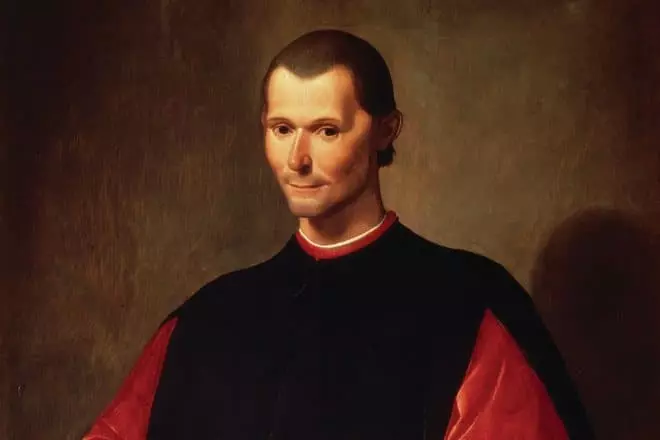
The surname Maciavelli is one of the oldest and most significant in Tuscany, but the title did not affect the financial situation. The family lawyer lived poorly. Education allowed the young man to study the classics in Latin and Italian (Tit Libya, Joseph Flavius, Cicero, Feodosij Macrobium). Niccolo's ancient Greek language did not know, but he studied the works of Plutarha, Fukidid, Polybia in Latin Translation.
In the biography of Niccolo Makiavelli not many episodes from childhood. The thinker himself wrote that in the youth interested in politics and did not remain indifferent to the political situation in the country. From memorable events: the invasion of Italy Charles VIII, the Medici family in exile, the management views of the reformer and the monk Girolamo Savonarola.
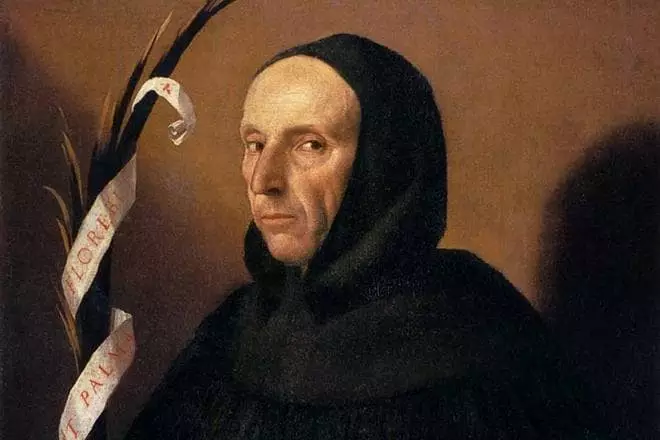
By the way, in a letter intended for Ricardo Becky (ambassador from Florence to Rome), Makiavelli critically responded to the actions of Savonarola.
After the expulsion of Piero di Lorenzo Medici, the ruler of Florence (the son of the State Worker Lorenzo magnificent), on the fact of state treason at the head of Florence, was Savonarola with republican convictions. The policy of the new ruler Makiavelli did not suit.
Literature
The life and work of Niccolo Makiavelli fell on the troubled era of Renaissance: Pope had the opportunity to own the army, and foreign states were in power (France, Spain, the Sacred Roman Empire). Unions were often replaced, mercenaries switched to the side of the enemy, and the authorities changed once a few weeks, Pal Rome.
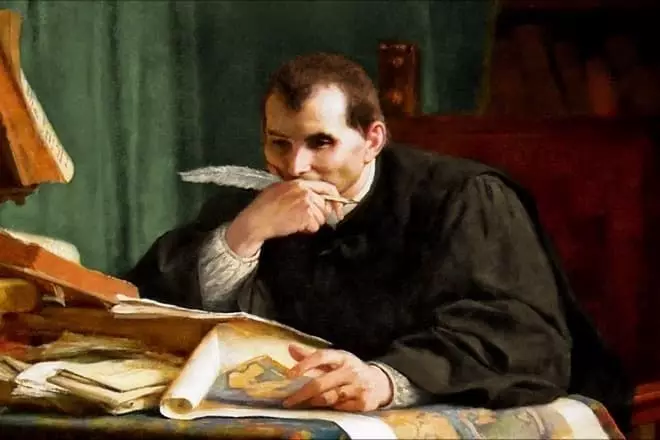
In 1498, Makiavelli began to serve as a state as secretary and the ambassador and retained the leadership after the execution of Savonarola. From 1502, the thinker has observed the effective ways of gradualization of the political figure of Cesare Bordjia. Although attempting to establish his own state in Central Italy and suffered fiasco, Machiavelli was openly admired by the methods of politics.
Cruel and solid in the decisions of Borgia was skillfully looking for benefits in any situation, chlorinatedly performed conceived. This policy coincided with the views of Machiavelli. In some historical references, there are authoritative opinions that for the year of close communication with Cesare Bordjia Niccolo originated the idea of managing the state, despite the moral foundations. Then he takes the beginning of the formation of the doctrine of the state, reflected later in the treatise "Sovereign".
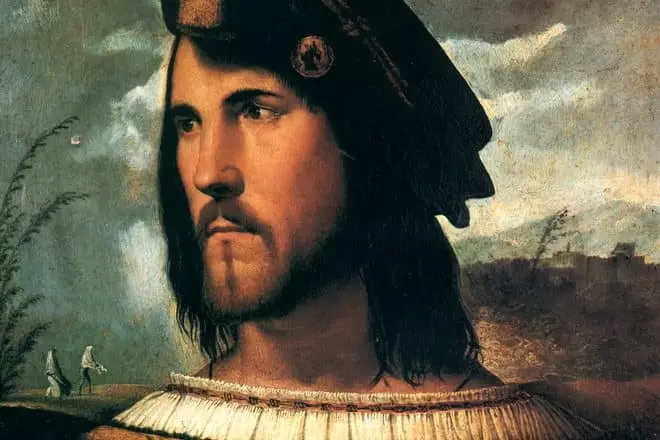
In the era of the Renaissance, the development of natural philosophy is gaining momentum during scientific discoveries. Medieval views and ideas go to the background, giving way to new teachings. Great influence of the theories of Leonardo da Vinci, Copernicus and Kuzansky. Now God is identified with nature.
Political coups and scientific achievements could not but affect the works of Machiavelli. In 1513, politician fell under arrest as a conspiracy conspiracy against Medici. The guilt did not prove, Makiavelli was free. At this time, he begins to work on the treatises.

"Sovereign" is not a huge multi-volume job, but a small book that made the name Niccolo Makiavelli immortal. This treatise expressed the main idea of the Italian political figure: strength and cold calculation above the moral values of the statesman. In the name of a worthy goal, bearing a good, Moral goes to the background.
The book saw the light only after the death of the author. Contemporaries and many historians have made the impression of Machiavelli as a formidable unprincipled tyrant. However, there are supporters of the views of the thinker who consider it a democratic. The political anthropology of Machiavelli implies politics as a person with a predominance of an animal start who is able to forget about ethics and morality for the benefit of themselves and people.

"Sovereign", written in approximately 1513 (there is no accurate data about this), is a guide to government management with a detailed description, how to keep and apply power. For the first time, the sovereign was considered as a person.
The works of Niccolo Machiavelli are a unique contribution to sociology and political science. The Italian thinker first put forward the idea that each man is obliged to carry military service. About this - in the work "On Military Art".
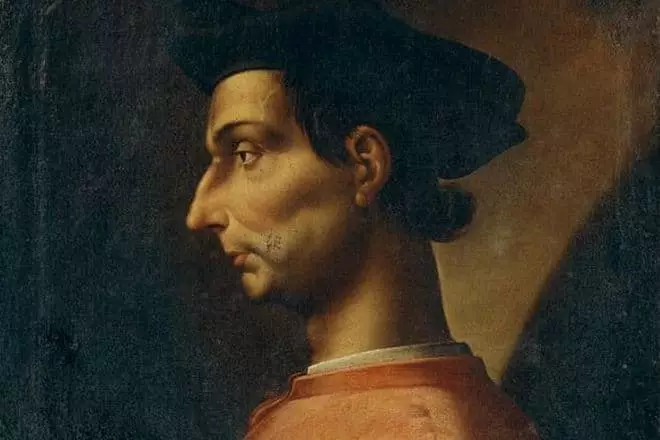
In addition to treatises about state power and politics, Machiavelli has other literature. In 1518, a comedy was written by La Mandragola (Mandragora). In 1965, the adaptation of Mandragora was published about Kallimah's church, who was anxulated by the wife of a lawyer Nikia. Lucretia is not available and proud. But in the family of lawyer Mountain: the spouse of Beauty is infertile. Callimah promises to cure the disease to the root of Mandragora and cunning achieves a joint night with Lucretia.
Proceedings Nikcolo Makiavelli are based exclusively on experience and observation. Preaching the vital philosophy, considered a thinker, you can only objectively and logically. The work of the Italian philosopher has long been disassembled by quotations and aphorisms. It is difficult to overestimate his contribution to the story.
Personal life
In winter, 1501, the acting diplomat Machiavelli came to Florence with the next state mission. There and chose Marietta di Luigi Corsini, a girl from a poor family.
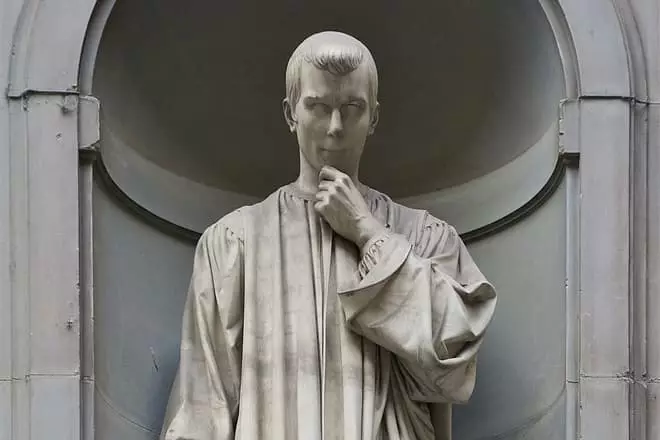
This marriage was mutually beneficial, first of all, to improve the welfare of two families. However, the relationship among the spouses was warm. Marietta gave birth to him five children.
However, this did not interfere with foreign trip policies to make numerous romantic ties with other women.
Death
Nikcola Makiavelli dedicated his career life and politics, Grezil about the prosperity of Florence. However, none of the expectations justified. In 1527, the Spaniards plundered Rome, and the replaced power no longer needed Makiavelli.
These events shake the health of the thinker. In June 1527, Niccolo died. Death came in San Kasano (near Florence). Where is the burial of the Italian, no one cannot say for sure. However, in Florence, in the Church of the Holy Cross, there is a tombstone in memory of Machiavelli.
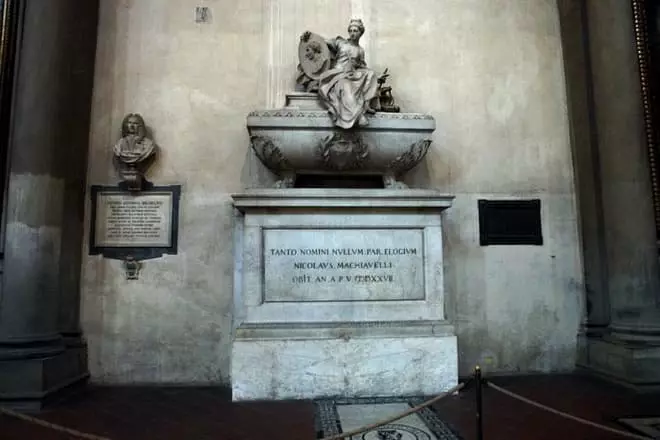
In 2012, a memorable documentary film in memory of Niccolo Makiavelli was removed.
In addition, the identity of the Great Italian is mentioned in films and serials. Among them: "Life Leonardo da Vinci", "Borgia", Nikcolao Makiavelli - Prince Politics. " The name of Machiavelli remains immortal in the artistic literature (Somerset Moem "Then now", Jorge Prayer "Keeper of the Secrets of Borgia").
Bibliography
- 1499 - Discorso Sopra Le Cose Di Pisa
- 1502 - "On how to act with the rebel residents of Valdikyan"
- 1502 - "A description of how Duke Valentino got rid of Wittello Vittelly Olivertta da Fermo, Signora Paolo and Duke Gravina Orsini"
- 1502 - Discorso Sopra La Provisione Del Danaro
- 1513 - "Sovereign"
- 1518 - Mandragora
- 1520 - Discorso Sopra Il Riformare Lo Stato di Firenze
- 1531 - "Correspondence on the First Decade of Titus Libya"
